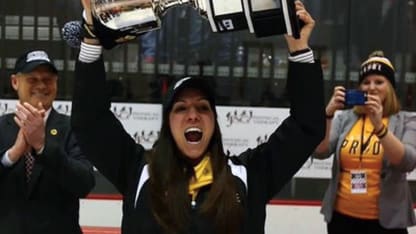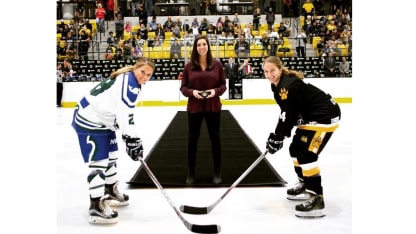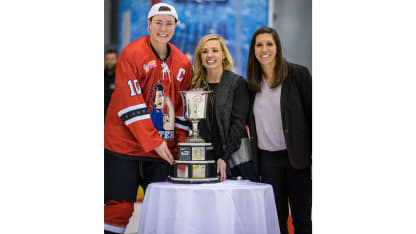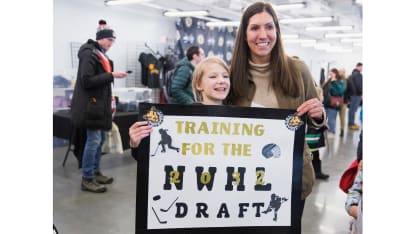It started early. Her older brother played hockey and she wanted in. She asked for hockey equipment for her fourth birthday. She fell in love.
As Moore grew up, she got to see the other side of the sport, courtesy of her father, Don, who volunteered "at every organization that I played for." He worked for Massachusetts Hockey as a registrar and was a volunteer at USA Hockey, wanting to help after seeing her passion. She noticed the work he did behind the scenes to make everything run smoothly.
She was taking notes, if not consciously.
Moore had intended to be a hockey player at first. She called herself "a little bit naive in terms of what my opportunities were going to be." Even in college, at Brown University, she believed that the next step was playing hockey, that there would be a professional opportunity for her.
It didn't exist.
So she tried to validate herself outside of the sport, using her human biology degree in medical device consulting. But something was missing. And so, because the opportunities she had hoped for weren't there, she decided to be part of building those opportunities.
"It says a lot about someone who has roles created for them," Rylan Kearney said. "She was the first deputy commissioner [of the NWHL]. She was the first team president in our history. She was a first GM -- there were three others at the same time -- but still first GM of a team in the NWHL. So I think it just says a lot about her as a leader, also just being able to take on any challenges and dive all in."
And that's what she sees in the AHL. A challenge, but one that she's ready for.
The choice wasn't a simple one, as often is the case for women leaving women's professional sports to work on the men's side.
"I definitely had to do a lot of soul-searching," Moore said. "Is this something that I'm prepared to do? Am I prepared to leave the NWHL and what I'm building here? Because so much of my position with the NWHL was rooted in providing opportunity. … And what fueled me was creating opportunity that never existed before.
"I just started to recognize that opportunity didn't just fall in the hands of everyone else in the league. It was also for me too."
By taking the job with the AHL, she was creating opportunity for herself, and for the person -- potentially another woman -- who would fill her old role.
"A rising tide raises all boats," said Digit Murphy, who coached Moore at Brown and is the coach and president of the Toronto Six of the NWHL. "Now we need more Hayleys in there. … She's a pioneer, and that makes me proud. She's awesome to take those leaps because a lot of women are afraid, and she's not afraid."







